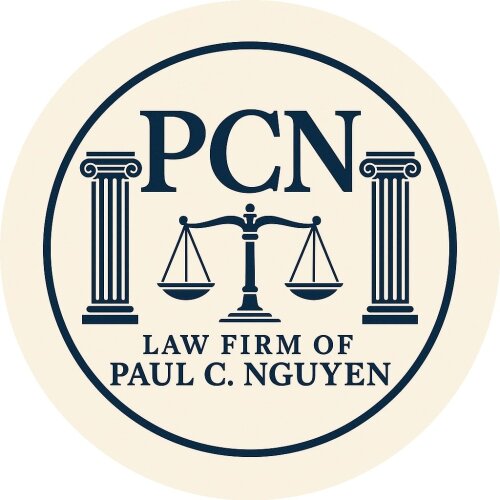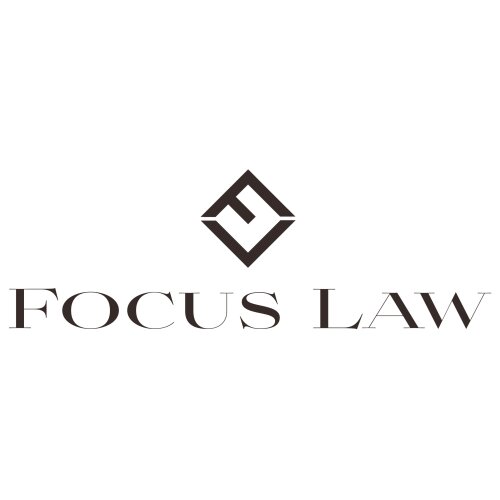Best Patent Lawyers in California
Share your needs with us, get contacted by law firms.
Free. Takes 2 min.
Or refine your search by selecting a city:
List of the best lawyers in California, United States
About Patent Law in California, United States
Patent law protects inventions, granting inventors the exclusive right to make, use, and sell their creations for a limited time. In California, as in the rest of the United States, patent protection is governed by federal law under the United States Patent and Trademark Office (USPTO). However, given California's reputation as a hub for technology, biotechnology, and innovation, the state sees a high volume of patent filings and disputes. Understanding patent law is crucial for inventors, startups, tech companies, and anyone working with novel inventions or intellectual property in California.
Why You May Need a Lawyer
The patent process is complex, and there are several situations where working with a legal professional is advisable:
- Assisting with patent searches to determine if your invention is patentable and does not infringe on existing patents.
- Preparing and filing patent applications with the USPTO, which requires meeting strict legal and technical requirements.
- Defending or enforcing patent rights in cases of infringement by others.
- Negotiating licenses or assignments of patent rights for commercialization or partnerships.
- Handling disputes, litigation, or appeals related to patent validity and enforcement.
- Understanding complex issues like patent eligibility of software, biotech, or business methods that are common in California.
A qualified patent attorney can help navigate these issues, protect your rights, and maximize the value of your invention.
Local Laws Overview
While patent law is established at the federal level, certain aspects are especially relevant in California:
- State courts may be involved in cases concerning patent contracts, employment agreements, or trade secrets that interact with patents.
- California’s strong pro-employee laws affect the ownership of inventions created by employees, especially regarding agreements made during employment.
- The state’s active innovation ecosystem means more frequent patent disputes, especially in the tech sector.
- California businesses must be cautious about complying with both federal patent regulations and state business practices.
- University researchers and startups in California often face unique issues in patent ownership and technology transfer.
Understanding these local nuances is important for anyone seeking to secure or defend patent rights in California.
Frequently Asked Questions
What is a patent?
A patent is a legal right granted by the federal government to inventors, giving them exclusive rights to make, use, sell, or import their invention for a certain period, usually 20 years from the filing date.
Who can apply for a patent?
Any individual or business entity that invents a new, useful, and non-obvious product, process, or improvement can apply for a patent through the USPTO.
How do I know if my invention is patentable?
Your invention must be novel, useful, and non-obvious. A patent lawyer can conduct a patent search to see if similar patents exist and advise you on patentability.
How long does it take to get a patent?
The patent process often takes between one and three years, depending on the complexity of the invention and the backlog at the USPTO.
Is my California-registered invention protected in other states?
Yes, a US patent provides nationwide protection. There is no separate California state patent law for patent rights themselves.
What should I do if someone is using my invention without my permission?
You should contact a patent attorney immediately to evaluate your options, which may include sending a cease-and-desist letter, negotiating a license, or filing a lawsuit.
Can software be patented in California?
Software can be patented if it meets certain requirements, such as being tied to a specific practical application, but the process is complex and often requires expert legal guidance.
What is a provisional patent application?
A provisional patent application is a temporary filing that establishes an early filing date for your invention. It gives you one year to file a complete utility patent application.
Who owns the patent if I invented something at work?
Ownership often depends on employment agreements and California’s strong worker protections. Employers may have rights to inventions created as part of your job, but these rights can be limited by state law.
Do I need a lawyer to file a patent application?
It is possible to file on your own, but due to the technical and legal requirements of patent applications, a lawyer’s guidance greatly improves your chances of success and helps avoid costly mistakes.
Additional Resources
Here are several resources and organizations that can be helpful for those seeking patent help in California:
- United States Patent and Trademark Office (USPTO) - Oversees federal patent applications and resources
- California Lawyers Association, Intellectual Property Section - Offers guidance and lawyer referrals
- Legal Aid organizations in California - May provide pro bono assistance for inventors with limited means
- Local university technology transfer offices - Help researchers and startups manage patents
- State of California Attorney General’s Office - Provides consumer protection information
Next Steps
If you need legal assistance with a patent issue in California, consider the following steps:
- Document your invention and gather all supporting materials, including sketches, prototypes, and descriptions.
- Conduct preliminary research to see if similar inventions exist using the USPTO patent database.
- Make a list of your goals - whether you want to protect, license, enforce, or sell your invention.
- Consult with a qualified patent attorney licensed to practice before the USPTO, especially one familiar with California-specific issues.
- Request an initial consultation to assess your case and discuss potential strategies and fees.
- Stay organized and proactive throughout the process - timely action is often critical in protecting patent rights.
By taking these steps and working with professionals, you can better safeguard your invention and maximize its potential value under the law in California.
Lawzana helps you find the best lawyers and law firms in California through a curated and pre-screened list of qualified legal professionals. Our platform offers rankings and detailed profiles of attorneys and law firms, allowing you to compare based on practice areas, including Patent, experience, and client feedback.
Each profile includes a description of the firm's areas of practice, client reviews, team members and partners, year of establishment, spoken languages, office locations, contact information, social media presence, and any published articles or resources. Most firms on our platform speak English and are experienced in both local and international legal matters.
Get a quote from top-rated law firms in California, United States — quickly, securely, and without unnecessary hassle.
Disclaimer:
The information provided on this page is for general informational purposes only and does not constitute legal advice. While we strive to ensure the accuracy and relevance of the content, legal information may change over time, and interpretations of the law can vary. You should always consult with a qualified legal professional for advice specific to your situation.
We disclaim all liability for actions taken or not taken based on the content of this page. If you believe any information is incorrect or outdated, please contact us, and we will review and update it where appropriate.
Browse patent law firms by city in California
Refine your search by selecting a city.















